It’s a well-known fact that eating fruits and vegetables improves health.
Research clearly shows that people who eat higher amounts of fruits and vegetables are more likely to live longer, disease-free lives than those who don’t eat enough.
It’s also a well-known fact that few people eat enough fruits and vegetables or even know how much they’re supposed to eat and why.
(The government recommends that adults eat about 3 cups of vegetables and 2 cups of fruit per day.)
Unfortunately, this negligence increases the risk of chronic disease and dysfunction.
One of the reasons for this is fruits and vegetables are the primary source of many of the micronutrients our bodies need to stay alive and healthy.
Another lesser-known reason is plant foods also contain other types of natural chemicals that aren’t essential to life, but help your body perform better and ward off disease (phytonutrients).
Two good examples of this are the chemicals sulforaphane and anthocyanins, which are found in large amounts in broccoli and blueberries, respectively.
These molecules confer a variety of health benefits but aren’t found on food labels, so many people aren’t even aware of their existence.
It’s “nonvital” nutrients like that explain why even a well-formulated multivitamin can’t take the place of a vegetable-rich diet.
(The multivitamin will provide the essential vitamins and minerals but not the wide spectrum of phytonutrients found in foods.)
The goal, then, is to include as many of these beneficial compounds in our diets as possible.
Unfortunately, that’s easier said than done because it requires eating a variety of plants and vegetables, including some that are pretty obscure and unpalatable.
And that’s where the greens supplement comes in.
The idea of taking a supplement that “optimizes our health” by making it easier to eat a large amount of fruits and vegetables sounds great in theory.
The average greens supplement does an incredibly poor job of this, though.
Let’s find out why.
Table of Contents
+
The Failings of the Average Greens Supplement
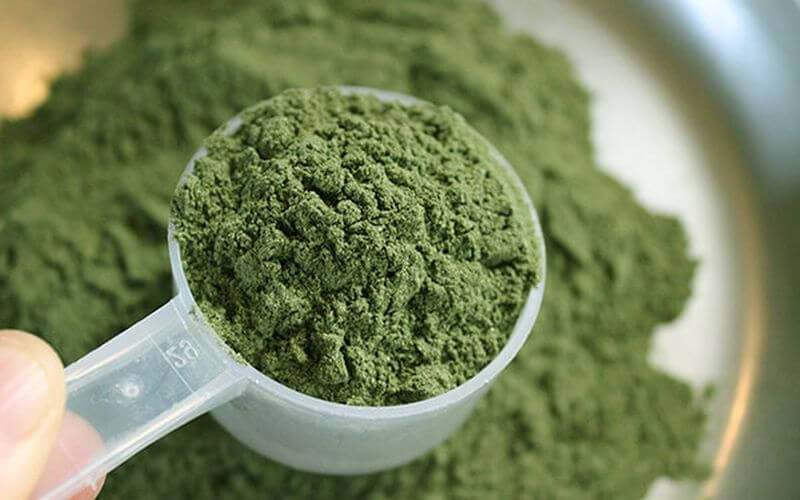
If you’ve seen one greens supplement, you’ve more or less seen them all.
They boast about…
- The large number of whole-food ingredients they contain, including various “superfoods.”
- The double-digit servings of fruits and vegetables in each serving.
- The inclusion of probiotics, prebiotics, and digestive enzymes.
Well, many of these supplements can’t live up to their sales pitches for several reasons:
- Despite having many whole-food ingredients, they’re often woefully low in certain essential micronutrients, unjustifiably high in some, and missing others altogether.
- They often include ingredients that aren’t likely to provide any significant benefits to healthy individuals (like probiotics, prebiotics, and enzymes, which we’ll talk more about soon).
- They often don’t include anything additional that is likely to provide significant benefits, and if they do, dosages are too small to be effective.
Let’s take a closer look at each of these points separately.
The Truth about Vitamin and Mineral Supplementation

It’s easy to assume that a supplement that’s (purportedly) packed full of vitamins and minerals must be healthful.
The reality, though, is that supplying superdoses of many micronutrients won’t provide any health benefits.
In some cases, superdosing can even be harmful.
For example, many green supplements trumpet their high levels of antioxidants, but research shows that supplementing with large amounts of antioxidants is unlikely to provide any health benefits and may even increase the risk of disease.
That isn’t to say that antioxidants are bad, of course, but in certain contexts, they can be.
That’s why it’s dishonest to market a supplement as inherent healthful or better than others because it has high levels of antioxidants.
Many greens supplements also do people the disservice of being quite low in vitamins and minerals that people actually tend to be deficient in, like vitamins D, K1, and K2, and zinc.
Again, this is why I think you’d be better off with a well-designed multivitamin than a mediocre greens supplement.
Yet another beef of mine with many greens supplements is how they promote natural forms of vitamins as inherently superior to synthetic forms.
Some even go as far to say that synthetic vitamins are dangerous.
Well, this is little more than a crooked appeal to nature.
You see, many people are unconsciously assume that something “natural” is good and something “unnatural” is bad.
This can work for the better in some cases but leads you astray in others.
And when we’re talking vitamins, natural forms aren’t always better for the body than synthetic forms, and not all synthetic forms are harmful.
Some natural vitamins have unique and beneficial properties that synthetic forms lack, such as vitamin E.
Research shows that some synthetic vitamins outperform natural ones, though, such as synthetic folic acid, which is better absorbed than folate from natural sources.
The bottom line is this:
There’s nothing wrong with getting all vitamins and minerals from natural sources, but supplements that demonize synthetic vitamins to sell you on their natural counterparts are simply lying and hoping you don’t know any better.
Superfood or Superscam?

“Superfood” is a brilliant piece of marketing.
It’s a simple and evocative label that can be used to elevate any food thought to be healthy above its peers (not to mention how much people are willing to pay for it!).
And oh how it’s working!
Foods commonly anointed as “super” include blueberries, salmon, kale, acai and goji berries, and chia seeds.
The problem with the superfood craze isn’t with the foods themselves. They’re perfectly nutritious.
The problem is there’s no set criteria for determining what qualifies as a “superfood” and what doesn’t, so it’s left to the tender mercies of food marketers.
And I think you know what that means: high jinks, shenanigans, and buffoonery.
Basically, any food that’s remotely nutritious has been branded a superfood, which drives up demand and prices.
Well, realize that there is no food group for “superfoods.”
Strawberries, asparagus, and white potato are just as “super” as blueberries, kale, and sweet potato in that all are rich sources of vitamins, minerals, and various phytonutrients.
And in some cases, so-called superfoods like goji berries and wheatgrass are rather underwhelming and fail to live up to the hype.
So, the reality is there are many foods you can eat to meet your body’s nutritional needs, and a large number don’t appear on any superfood listicles.
Here’s how Alison Hornby, spokesperson for the British Dietetic Association (BDA), put it:
“All unprocessed food from the major food groups could be considered ‘super’. All these foods are useful as part of a balanced diet.”
The Great “Alkalize Your Body” Hoax
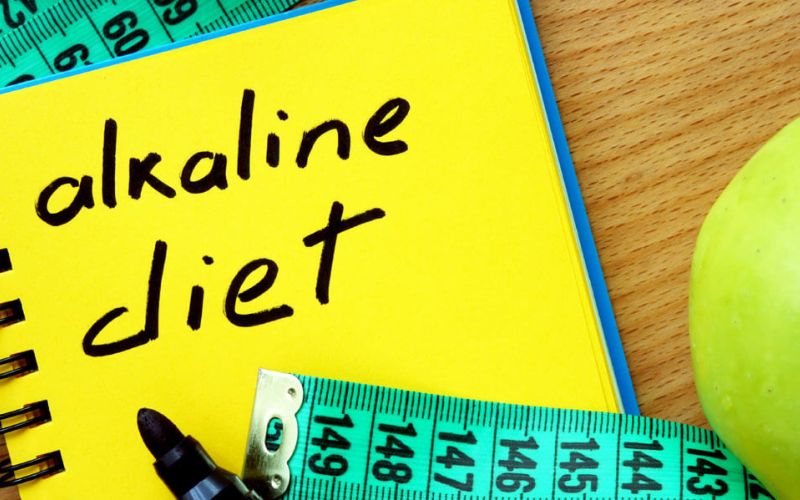
Browse the greens supplements on the market today and you’re going to see a lot of prattle about “alkalizing” your body.
The idea is simple:
By using food to create an “alkaline environment” in our bodies, we can optimize our health and protect against disease.
Sounds great…but the science is clear: it’s not that simple.
In chemistry, pH is a measure of the acidity of a solution. A pH of less than 7 is said to be “acidic” and a reading greater than 7 is “basic” or “alkaline.”
The further a substance is from neutral (in either direction), the more it can react with other substances and cause chemical changes.
Now, when you eat food, various metabolic byproducts are produced (called “ash”), and they have varying pH values.
Some are acidic, some are alkaline, and some can change in pH after being absorbed (like baking soda).
Proponents of “alkaline dieting” categorize foods based on the pH value of the ash they create:
1. Acidic foods.
These foods produce acidic ash and include basically all grains and all sources of high-quality animal protein (meat, poultry, fish, dairy, and eggs).
2. Neutral foods.
These foods produce neutral ash and include fats, sugars, and starches.
3. Alkaline foods.
These foods produce alkaline ash and include plant-based foods like fruit, nuts, legumes, and vegetables.
Now, the alkaline fable states that the more you eat acidic foods, the more acidic your blood and thus entire body becomes.
And the more acidic your body becomes, we’re told, the more susceptible it is to a host of diseases ranging from osteoporosis to diabetes to cancer.
On the other hand, if you eat a large amount of alkaline foods, you can raise your body’s internal pH value and bulletproof it against the modern onslaught of superbugs, mutant foods, hazardous chemicals, and the rest of the lot.
The theory may sound plausible and, ironically, a diet high in alkaline foods is conducive to good health…but not for the reasons you’re being given.
The biggest problem with the alkaline diet hypothesis is the scientifically proven fact that the foods you eat don’t cause large or lasting changes in the pH value of your blood.
We’re lucky that this is how the body works, too.
Your body’s pH is similar to its internal temperature in that it’s tightly controlled. A significant rise or fall in either means certain death.
This is why, unless you have kidney disease, your blood is going to remain at a rather neutral pH of about 7.4 regardless of what you eat.
Ironically, this has been known for decades but the food-blood pH myth is still lurking around.
One of the reasons it’s still “a thing” has to do with a simple misunderstanding about the difference between blood and urine pH.
You see, food may not be able to significantly affect blood pH, but it does impact urine pH.
A hearty salad will raise the pH of your pee and a big ol’ bronto burger will lower it, and some people fancy this as incontrovertible evidence that alkaline foods are alkilizing and acid foods are acidifying.
Research shows otherwise, though: the pH level of our urine isn’t a reliable indicator of the pH of our blood or of our overall health and susceptibility to disease.
This makes sense when you look at what actually happens in your body when you eat food.
When you eat acidic foods, for example, the acidic ash is quickly neutralized by special molecules in the blood.
One of the byproducts of this is carbon dioxide, which you exhale. Another is salts, which are disposed of by the kidneys.
New bicarbonate ions are produced as well, which allows to the body to sustain the entire cycle.
Some people claim that the kidneys alone can’t handle this process, requiring that minerals be pulled from the bones. This has been disproved by several studies, though.
Ironically, increasing protein intake (and animal protein intake, which is particularly acidic) has been shown to improve bone health, despite increasing the “acid load” in the body.
The bottom line is that you absolutely should include plenty of “alkaline foods” in your diet, including fruits, vegetables, nuts, and legumes, but not because they optimize your blood pH levels.
They’re just great sources of micro- and macronutrients.
Thus, when a greens supplement is promoted as “alkalizing,” just know they’re trying to bilk you with buzzwords, not educate you as a consumer.
The Truth About Digestive Enzymes
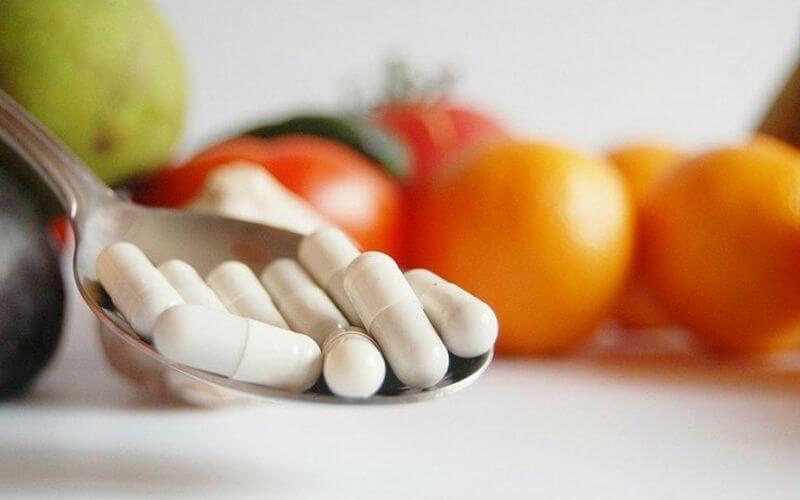
Many greens supplements tout the fact that they contain digestive enzymes.
This, they say, improves food digestion and absorption, allowing us to extract more nutritive value out of what we eat.
Well, let’s see what the science says, starting with the basics.
An enzymes is a molecule that causes or speeds up a chemical reaction in the body.
Digestive enzymes are produced in the mouth, stomach, and intestines to help break food down so it can be absorbed and used.
The type of enzyme added to greens supplements is a food enzyme, which is a substance found in uncooked nuts, vegetables, and fruit.
The most common food enzymes used are papain from papaya and bromelain from pineapple.
There’s a theory that by supplementing with food enzymes, you can reduce the need for digestive enzymes and thereby “free up” energy for other bodily processes like “detoxification” and tissue repair.
Some marketers even claim that digestive enzymes can help you lose weight.
These claims may sound reasonable to you, but there’s a distinct lack of scientific evidence to back them up.
Research shows that supplementation with digestive enzymes can help people with certain digestive disorders, but people with healthy digestion won’t likely benefit from it.
They are something that should be implemented in response to an actual problem, not something you should take daily, hoping to improve your health.
So, unless you have a digestive dysfunction of some kind, you have little to gain from food enzymes included in your average greens supplement. (And again, you’re just being sold a bill of goods.)
The Truth About Probiotics
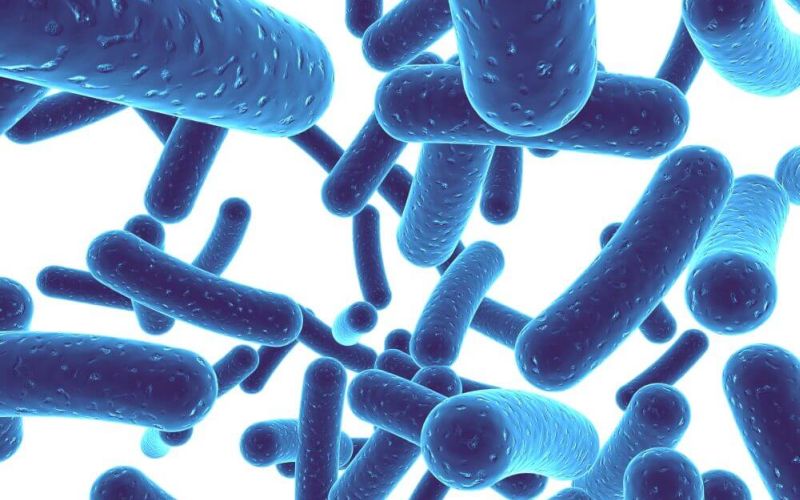
Probiotics are live bacteria that replace or add to the beneficial bacteria in the gut.
Many types of bacteria are classified as probiotics, but most fall into one of two groups:
1. Lactobacillus
This is found in yogurt and other fermented foods.
2. Bifidobacterium
This is also found in some dairy products.
The gut is incredibly complex and scientists are still working to determine exactly how probiotics work.
Research does suggest, however, that supplementation with certain types of probiotics can help alleviate some gastrointestinal conditions and prevent infectious- and antibiotic-related diarrhea.
That’s not how greens supplements will sell you on their probiotics, though.
They’re going to say that, regardless of your health status, probiotics will boost your immune system, improve your digestion and gut health, and maybe even accelerate weight loss.
Well, such claims are controversial, unsubstantiated, and, quite frankly, misleading.
There is preliminary evidence that probiotic supplementation may be able to benefit everyone, including us healthy folk, but more research is needed.
The bottom line is that we just don’t know and it’s disingenuous to say otherwise.
As if all of that weren’t enough, there’s another major problem with many probiotic supplements:
If the bacteria isn’t prepared and stored properly, they die.
For example, too much heat during processing kills them. Freeze-drying can kill them too.
Furthermore, if the wrong delivery system is used, the bacteria can also die in the stomach, before even reaching the small intestine.
So, while the probiotics found in many greens supplements may benefit you, the scientific evidence isn’t there yet, making it a less-than-exciting way to spend your money.
The Truth About Prebiotics
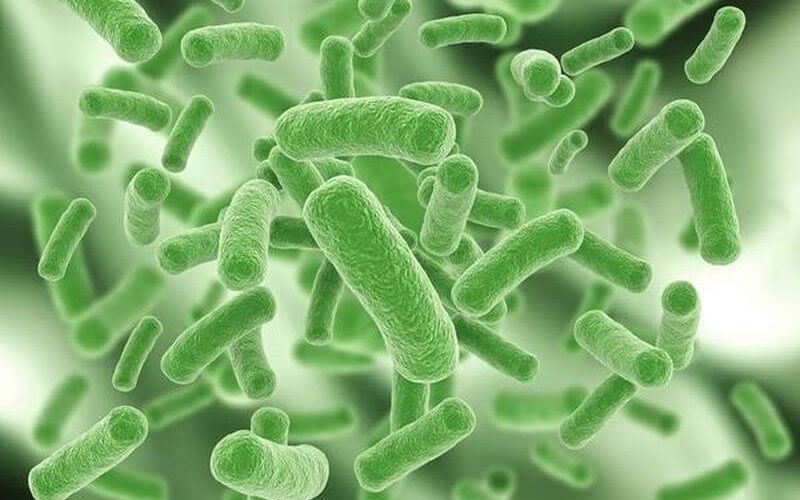
When we’re talking diet, prebiotics are a type of fiber (insoluble) that promotes the growth and/or activity of “good” gut bacteria.
It’s found in many fruits, vegetables, and grains, including…
- Chicory root
- Artichoke
- Garlic
- Leek
- Onion
- Banana
- Oatmeal
- Wheat flour
- Asparagus
There’s no question that prebiotics are healthful. Research shows their many benefits include…
- Promoting a lower body weight.
- Improving gut health.
- Regulating laxation.
- Helping control appetite.
- Reducing the risk of various types of disease, including cardiovascular disease, diabetes, IBS, and more.
- And much more.
Soluble fiber (prebiotics) are a large part of why you should be eating a well-balanced diet that includes fruits, vegetables, whole grains, and other plant-based foods.
So…if all that is true, then supplementation with prebiotics must be beneficial, right?
Well, research shows it can be if your gut health is compromised, and it would make sense to supplement if you can’t or don’t get enough fiber in your diet.
That said, if you do get plenty of soluble fiber in your diet (5 to 10 grams per day is a good target) and have no gastrointestinal problems, it’s unlikely that supplementing prebiotics is going to benefit you.
The simple question, then, is whether you want to use an expensive greens supplement as a source of prebiotics or just eat a nutritious, fiber-rich diet instead.
Beware the Proprietary Blend
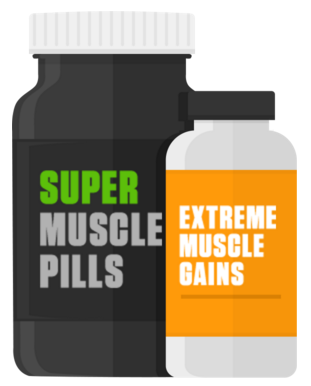
Want to create a crappy, under-dosed supplement and hide how inadequate your formulation is?
Great! The proprietary blend is all you need!
Here’s what I’m talking about:
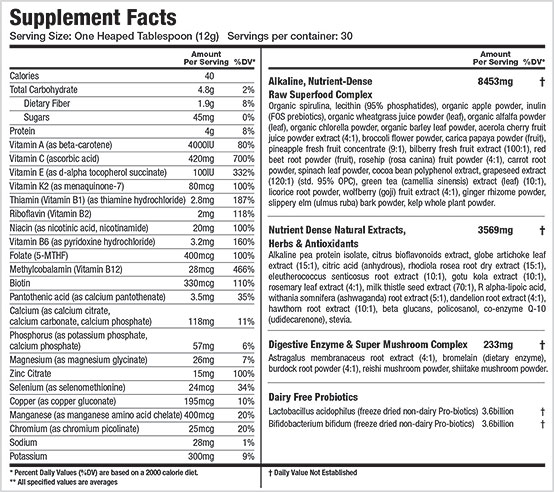
This is the supplement facts panel of a popular greens supplement and on the right side, you can see several proprietary blends:
1. The “Alkaline, Nutrient-Dense, Raw, Superfood Complex”
2. The “Nutrient Dense Natural Extracts, Herbs & Antioxidants”
3. The “Digestive Enzyme & Super Mushroom Complex”
4. “Dairy Free Probiotics”
As you can see, these blends constitute dozens and dozens of ingredients, which looks pretty impressive.
This thing must be good for you, right?
Well, first, the assumption that the product even contains what it says is a leap of faith.
But let’s take that leap, because here’s the rub:
As you can see, the company only lists the total weight of the blends, not the dosages of each ingredient.
This is how they can rip you off without you ever realizing it.
You see, what many people don’t know about proprietary blends is ingredients are listed in descending order according to predominance by weight.
That is, a blend contains more of the first ingredient than the second, more of the second than the third, and so forth.
And no matter how many other ingredients are listed after the first, they can altogether only constitute a very small percentage of the actual blend.
(I know of supplement companies that list blends with 10+ ingredients with the first ones alone constituting 95%+ of the entire blends.)
Furthermore, there can be a milligram or less of an ingredient in each serving and it can be listed as a part of the blend.
I’m sure you see how easily these gaping loopholes can be exploited to mislead consumers, but let’s be specific.
In the case above, the “Alkaline, Nutrient-Dense, Raw, Superfood Complex” weighs about 8.5 grams and is comprised of, I don’t know, 30+ ingredients?
Well, while that litany of “superfoods” might look impressive, let’s remember that dosages (which we aren’t privy to) are the key.
A few hundred milligrams of spirulina is better than nothing, I guess, but a few grams is much better.
And as we move down the list, we could expect to see just a few milligrams of ingredients, which is good for nothing but puffing up a label.
The bottom line is the only reason to use proprietary blends is deception.
All the science behind effective ingredients and dosages is publicly available. Everyone can learn what works, what doesn’t, and in what amounts. Claims of “trade secrets” are bogus.
If a company isn’t willing to tell you exactly what you’re buying, it’s because they don’t want you to know. Don’t support them.
Force them to change their ways.
What Are the Benefits of a Greens Supplement?
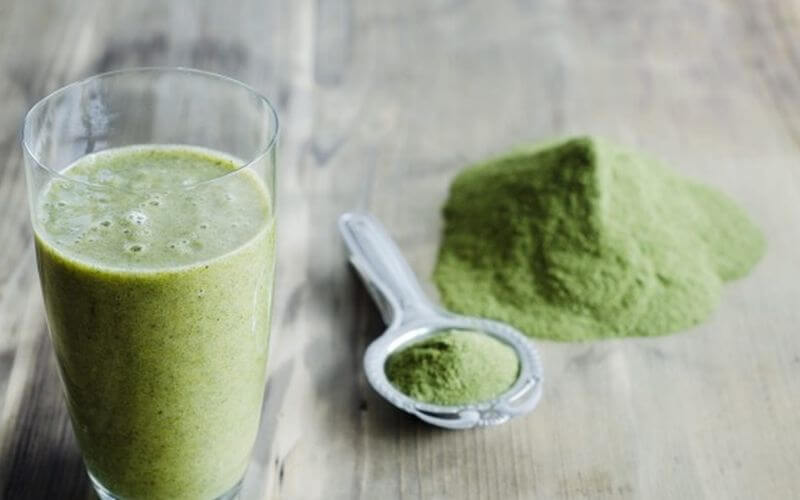
Now that we’ve sandblasted the varnish off the greens supplement, let’s see what we’re left with.
Well, it’s not very exciting.
- If you eat a well-balanced diet replete with fruit and vegetables, most of the greens supplements on the market aren’t going to do much for you.
- If you don’t, well, a greens supplement is going to help but it can’t fully replace what you’re not getting.
These products are meant to supplement your diet, not be your diet.
So, as we recall, what we’re left with is a middling multivitamin of sorts.
That said, does it have to be like this? And are all greens supplements equally humdrum?
What’s the Best Greens Supplement?
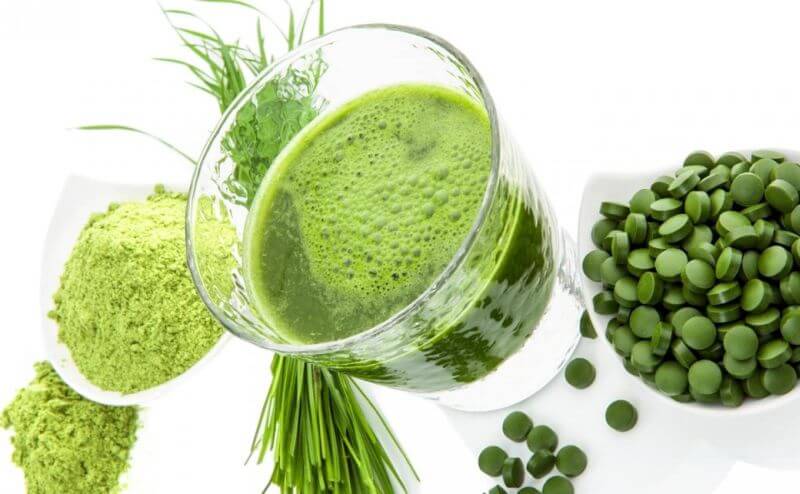
As you can see, I’m a bit of a stickler with supplements.
I want top-shelf products or nothing at all.
And in terms of a greens supplement, here’s my wish list:
1. A base of leafy greens rich in nitrates and other beneficial phytochemicals.
Leafy greens are some of the most nutrient-dense plant foods we can eat.
2. A blend of anthocyanins.
Anthocyanins are pigments found in various plant foods that have anti-oxidant and anti-inflammatory properties.
3. A clinically effective dosage of spirulina.
Spirulina is a blue-green algae that is widely considered one of nature’s richest and most complete sources of vital nutrients.
4. A combination of other beneficial ingredients that we aren’t going to get from our diets.
Some of my favorites are reishi mushroom, maca, and astragalus membranaceus.
Well, until recently, this type of product has been a pipe dream because nothing on the market even came close.
Instead, all I could find was junk like I showed you earlier in the article.
So I did what any red-blooded entrepreneur would do: I made it myself.
It’s called GENESIS, and it’s unlike any other greens supplement out there.
When my team and I set out to research GENESIS’s formulation, we started with what we didn’t want it to be:
Just another poorly formulated multivitamin supplement with little else to offer.
Instead, we wanted to focus on select plants, fruits, and vegetables that can provide several key benefits particularly important to people living an active lifestyle:
- Improving physical and mental performance
- Increasing energy levels
- Decreasing feelings of anxiety and fatigue
- Increasing feelings of well-being and vitality
- Protecting heart and circulatory health
- Promoting faster recovery
- Boosting immunity and longevity
We conducted an extensive scientific review of a wide variety of molecules known to meet those targets, and we carefully chose a handful that safely deliver consistent results.
The result is the most potent greens supplement on the market built, with every ingredient backed by sound clinical research and included at clinically effective dosages.
Let’s take a look at the formulation.
Greens Blend
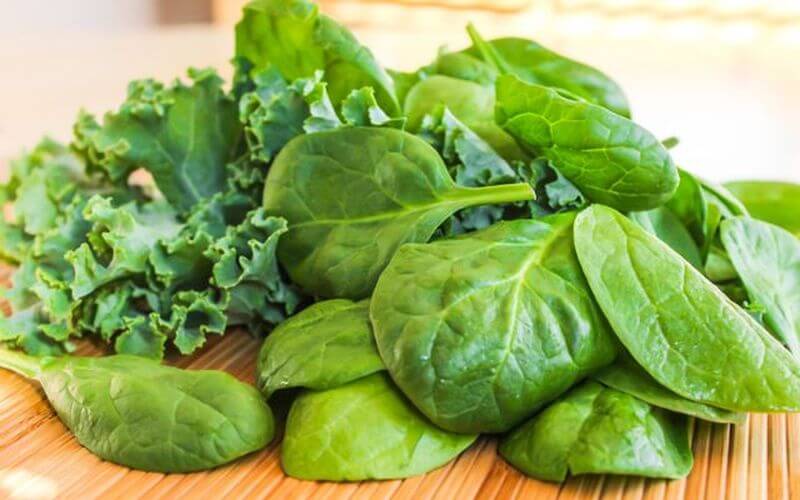
As you know, people who eat several servings of fruit and vegetables daily live longer, healthier lives than those who don’t.
Some people ensure they eat enough of these foods every day, but many people find supplementation helpful in meeting their daily needs.
This is why we started with a greens blend consisting of four plants: spinach, kale, dandelion leaf, and broccoli.
We chose these plants because each is considered a “leafy green” vegetable and is high in one particular molecule of concern: nitrate.
Dietary nitrates are found most commonly in leafy greens and beets, which accounts for their ergogenic and circulatory benefits, and a diet high in nitrates is conducive to long-term heart and circulatory health.
We chose the combination of spinach, kale, dandelion leaf, and broccoli rather than simply using a large dose of lettuce or rocket, because spinach and kale have other beneficial compounds in them such as isothiocyanates, which are known to confer a variety of health benefits.
Dandelion is also high in dietary potassium, which is by far the most common nutrient deficiency and not one that can be easily solved with supplements.
GENESIS CONTAINS A 4-GRAM BLEND OF SPINACH, KALE, AND DANDELION LEAF PER SERVING
Reishi Mushroom
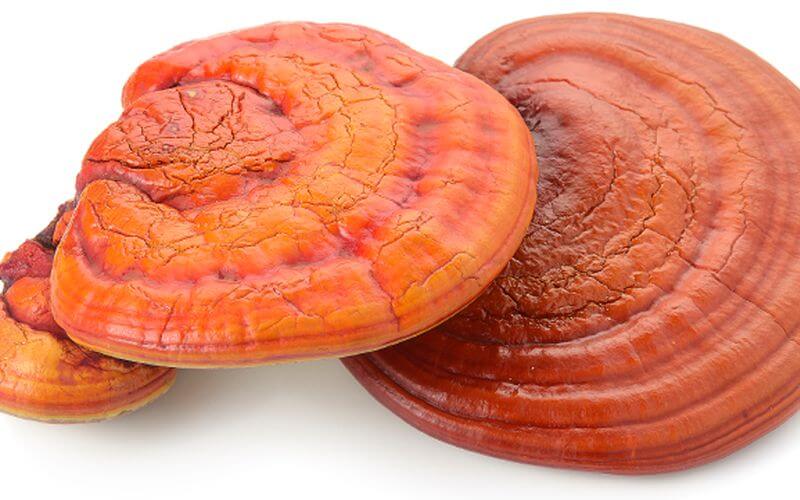
Reishi mushroom, or Ganoderma lucidum, has been used for medicinal purposes for at least 2,000 years.
It contains a large number of bioactive molecules and was known to the ancients as “the mushroom of immortality,” and it has been used historically to treat a variety of conditions ranging from insulin resistance to immune deficiencies to fatigue to cancer.
Modern Western science is now catching up with and validating this Eastern traditional wisdom. Specifically, Reishi doesn’t seem promising as a first-line treatment for disease, but it does boast an impressive list of benefits that extend to healthy individuals.
Research shows that supplementation with reishi mushroom…
- Improves subjective sense of well-being
- Helps protect liver health
- Reduces feelings of anxiety and fatigue
- Protects DNA from oxidant damage, which is a major factor in aging
- Inhibits the creation of new fat cells
- Reduces the time it takes to fall asleep
- Helps protect brain health
- Improves blood glucose control
- Raises “good” (HDL) cholesterol levels
- Boosts and balances the immune system
- Helps protect kidney health
- Exerts anticancer effects
The clinically effective dosage of reishi mushroom extract ranges between 1.5 and 5 grams.
GENESIS CONTAINS 2.5 GRAMS OF REISHI MUSHROOM EXTRACT PER SERVING
Spirulina
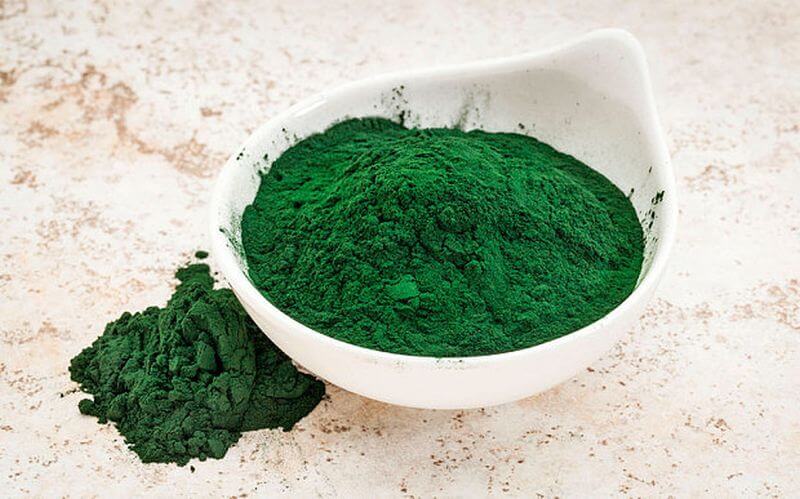
Spirulina is a blue-green algae that is widely considered one of nature’s richest and most complete sources of vital nutrients.
It’s often used as a vegan source of protein and is particularly rich in B vitamins, minerals, and essential fatty acids.
It also contains a notable amount of phycocyanobilin, which is a molecule that provides potent anti-oxidative and anti-inflammatory effects.
Phycocyanobilin accomplishes this by stimulating immune cells, and, rather uniquely, spirulina contains another compound known as a Braun lipoprotein that prevents the immune system from overreacting and creating widespread inflammation.
Research shows that supplementation with spirulina…
- Improves the cholesterol profile
- Increases muscle endurance
- Helps control allergies
- Reduces muscle damage caused by exercise
- Helps the body eliminate heavy metals
- Lowers blood pressure
- Helps protect liver health
- Reduces systemic inflammation
- Improves insulin sensitivity
The clinically effective dosage of spirulina ranges between 2 and 10 grams.
GENESIS CONTAINS 5 GRAMS OF SPIRULINA PER SERVING
Astragalus Membranaceous
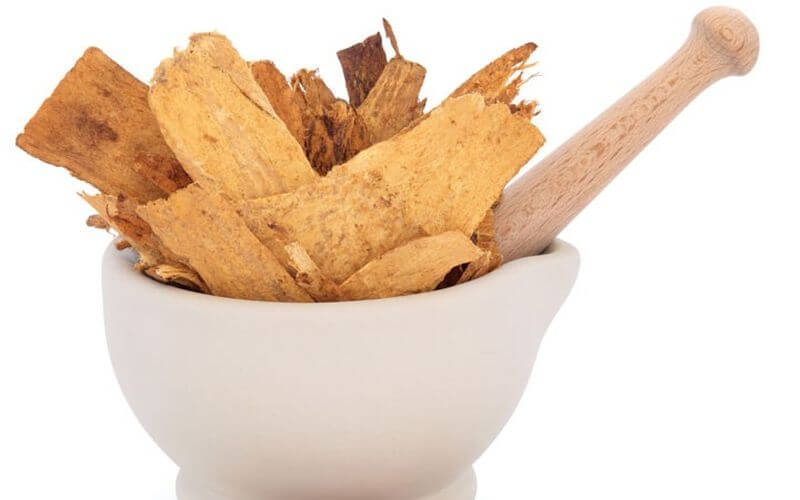
Astragalus membranaceus is one of the 50 fundamental herbs in Traditional Chinese Medicine, and it has long been used to increase stamina, vitality, and longevity and to treat colds and flu.
Astragalus contains a variety of beneficial molecules such as flavanoids and polysaccharides, but one of the more notable components is “astragaloside IV,” which is a type of compound found in many plants known as saponins.
Research shows that supplementation with astragalus membranaceus…
- Boosts the immune system
- Helps protect heart health
- Reduces blood pressure
- Helps protect kidney health
There’s also animal research suggesting that astragalus promotes longevity, but this has yet to be explored in human studies.
The clinically effective dosage of astragalus membranaceus depends on how much astragaloside IV it provides, and the clinically effective dosage of astragaloside IV is 5 to 10 milligrams.
GENESIS CONTAINS 3 GRAMS OF ASTRAGALUS MEMBRANACEUS PER SERVING, PROVIDING 9 MILLIGRAMS OF ASTRAGALOSIDE IV
Moringa Oleifera
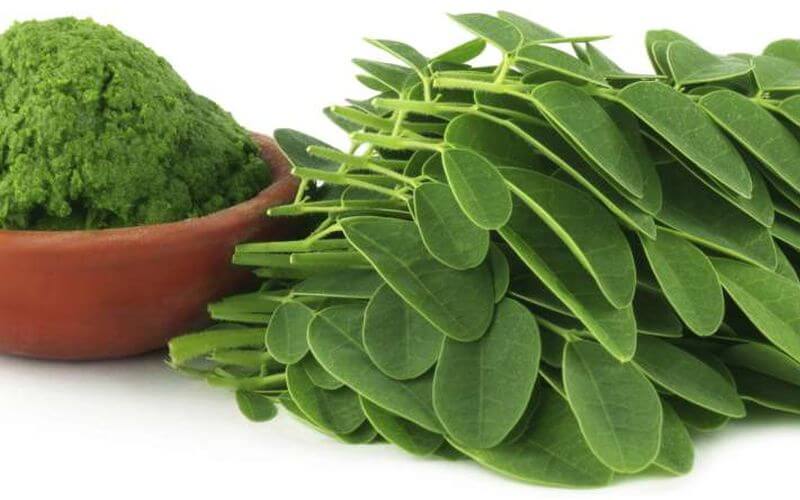
For centuries, the natives of Northern India have known the many benefits of the moringa tree.
Virtually every part is useful and it grows quickly, can survive droughts, is highly nutritious, and can even help produce clean water.
The leaves have long been a part of India’s medicinal traditions, and research confirms just how extraordinary their nutrient profile really is.
Gram for gram, Moringa leaves contain four times the calcium and two times the protein of milk, three times the potassium in bananas, four times the vitamin A in carrots, and seven times the vitamin C in oranges.
We chose to include moringa for two reasons:
1. Its high potassium content, which most people can benefit from due to inadequate potassium intake.
2. Its large amount of various types of isothiocyanates, which are thought to be responsible for many of the health benefits of moringa.
Research shows that supplementation with moringa…
The clinically effective dosage of moringa ranges between 500 and 2,000 milligrams of the leaf.
GENESIS CONTAINS 1 GRAM OF MORINGA OLEIFERA LEAF PER SERVING
Maca
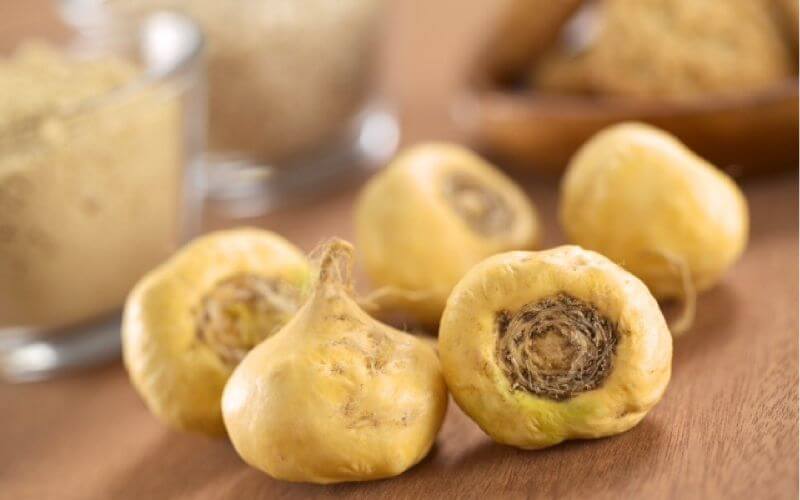
Maca is plant native to Peru that’s grown for its fleshy root, and its cultivation goes back thousands of years as it was an integral part of the diet and commerce of the ancient Incan civilization.
Historically, maca has been used as an energy and libido enhancer and for improving hormonal function.
Knowledge of its special properties all but disappeared but, thanks to German and North American scientists studying the “lost crops of the Andes,” maca was introduced to the world in the 1960s and again in the 1980s.
Research shows that supplementation with maca…
- Improves subjective sense of well-being
- Improves sexual function in men and women
- Improves sperm production and health
- Improves libido in men and women
- Helps preserve joint health
- Can reduce feelings of anxiety and non-clincial depression
The clinically effective dosage of maca extract ranges between 1 and 3 grams.
GENESIS CONTAINS 1.5 GRAMS OF MACA EXTRACT PER SERVING
What About the Anthocyanins?
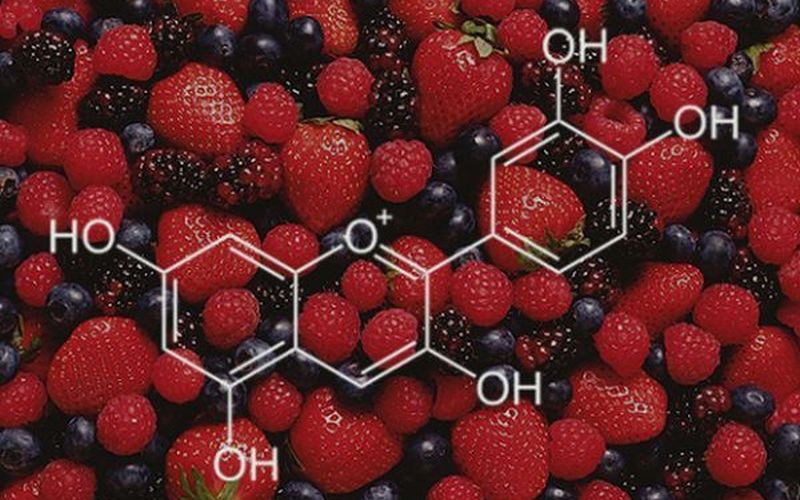
If you’ve been paying attention, you’ve probably noticed one thing missing from GENESIS: anthocyanins.
Unfortunately, it’s true. They didn’t make it into the product.
BUT…it wasn’t for the lack of trying.
Unfortunately, they’re incredibly expensive and a clinically effective dosage was going to cost me nearly $30 per bottle. Yikes.
Hopefully this price comes down as processing methods improve, but until then, we’ll just need to keep eating plenty of colorful fruits and plants.
The Bottom Line on My Greens Supplement
As you can see, GENESIS contains 100% natural, safe substances that are scientifically proven to increase general immunity, heart and circulatory health, energy levels, libido, mood and overall well-being, and more.
While our choices of ingredients alone set GENESIS apart from the rest of the crowd, what really proves its superiority is that each ingredient is included at clinically effective dosages.
That means that the dosages of each ingredient in GENESIS are based on published scientific research proving its benefits, not the restrictions of razor-thin production budgets or gluttonous profit margins.
When you start comparing actual numbers, you will quickly see that one serving of GENESIS contains several times the amount of effective ingredients as our best competitors’ products.
And some of the ingredients you just can’t find in other greens supplements.
So, while everyone claims to have the best greens supplements on the market, I believe I can actually back up such a claim with real science and real numbers.
If you want to supplement your diet with additional vegetable intake as well as other plant-based nutrients proven to improve health, mood, physical performance, immunity, and longevity…then you want to try GENESIS today.
The Bottom Line on Greens Supplements
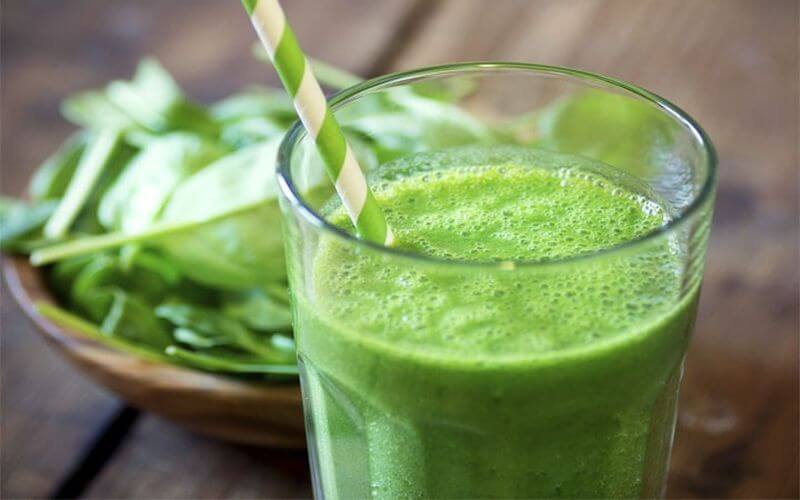
Like many supplements, the greens supplement is a victim of unreal hopes and promises.
- If you eat poorly, you can’t “undo” the damage with a daily glass of green goop.
- If you eat well, you probably won’t benefit much from your average greens supplement.
All in all, most greens supplements are one of those products that I would drop in the “if you have an unlimited supplement budget” bucket.
And even then I might not bother.
That’s why I did something special with my greens supplement and stacked it with a variety of healthful ingredients that you simply won’t get from your diet.
The goal was to take it far beyond a mere tub of fruit and vegetable powders and I like to think I succeeded. 🙂
As good as GENESIS is, though, it still isn’t a replacement for real food or band-aid for unhealthy living. It’s meant to improve your health and performance beyond what’s possible through diet alone.
What’s your take on greens supplements? Have anything else to share? Let me know in the comments below!
Scientific References +
- NA, B., G, W., KZ, W., JF, A., MB, C., & L, S. (2008). Beneficial effects of Lepidium meyenii (Maca) on psychological symptoms and measures of sexual dysfunction in postmenopausal women are not related to estrogen or androgen content. Menopause (New York, N.Y.), 15(6), 1157–1162. https://doi.org/10.1097/GME.0B013E3181732953
- MJ, M., S, A., P, B., & TM, H. (2006). The chrondoprotective actions of a natural product are associated with the activation of IGF-1 production by human chondrocytes despite the presence of IL-1beta. BMC Complementary and Alternative Medicine, 6. https://doi.org/10.1186/1472-6882-6-13
- CM, D., L, F., G, P., A, F., S, S., M, F., & D, M. (2008). A double-blind, randomized, pilot dose-finding study of maca root (L. meyenii) for the management of SSRI-induced sexual dysfunction. CNS Neuroscience & Therapeutics, 14(3), 182–191. https://doi.org/10.1111/J.1755-5949.2008.00052.X
- GF, G., A, C., K, V., A, C., A, V., C, G., & S, C. (2002). Effect of Lepidium meyenii (MACA) on sexual desire and its absent relationship with serum testosterone levels in adult healthy men. Andrologia, 34(6), 367–372. https://doi.org/10.1046/J.1439-0272.2002.00519.X
- G F Gonzales, A Cordova, C Gonzales, A Chung, K Vega, & A Villena. (n.d.). Lepidium meyenii (Maca) improved semen parameters in adult men - PubMed. Retrieved August 18, 2021, from https://pubmed.ncbi.nlm.nih.gov/11753476/
- NA, B., G, W., KZ, W., JF, A., MB, C., & L, S. (2008). Beneficial effects of Lepidium meyenii (Maca) on psychological symptoms and measures of sexual dysfunction in postmenopausal women are not related to estrogen or androgen content. Menopause (New York, N.Y.), 15(6), 1157–1162. https://doi.org/10.1097/GME.0B013E3181732953
- T, Z., AF, C., L, V., M, M., & E, B. (2009). Subjective effects of Lepidium meyenii (Maca) extract on well-being and sexual performances in patients with mild erectile dysfunction: a randomised, double-blind clinical trial. Andrologia, 41(2), 95–99. https://doi.org/10.1111/J.1439-0272.2008.00892.X
- AP, G., C, V., H, S., Y, F., K, H., T, M., M, K., Y, I., H, T., & H, N. (1999). An antitumor promoter from Moringa oleifera Lam. Mutation Research, 440(2), 181–188. https://doi.org/10.1016/S1383-5718(99)00025-X
- DP, A., DS, D., P, M., AJ, A., BJ, K., NB, G., & K, E. (2012). Effect on blood pressure of a dietary supplement containing traditional medicinal plants of Côte d’Ivoire. Journal of Ethnopharmacology, 141(3), 840–847. https://doi.org/10.1016/J.JEP.2012.03.022
- BN, S., BR, S., RL, S., D, P., R, D., G, U., & HB, S. (2009). Oxidative DNA damage protective activity, antioxidant and anti-quorum sensing potentials of Moringa oleifera. Food and Chemical Toxicology : An International Journal Published for the British Industrial Biological Research Association, 47(6), 1109–1116. https://doi.org/10.1016/J.FCT.2009.01.034
- S, F., BS, S., R, S., K, A., F, S., & AH, G. (1998). Hypotensive constituents from the pods of Moringa oleifera. Planta Medica, 64(3), 225–228. https://doi.org/10.1055/S-2006-957414
- P, C., P, K., Y, S., S, P., NP, M., L, P.-N., P, R., S, S., & KU, P. (2008). The in vitro and ex vivo antioxidant properties, hypolipidaemic and antiatherosclerotic activities of water extract of Moringa oleifera Lam. leaves. Journal of Ethnopharmacology, 116(3), 439–446. https://doi.org/10.1016/J.JEP.2007.12.010
- XQ, M., F, Y., N, W., Y, W., F, Z., K, W., M, L., & JP, O. (2009). Hypoglycemic effect of polysaccharide enriched extract of Astragalus membranaceus in diet induced insulin resistant C57BL/6J mice and its potential mechanism. Phytomedicine : International Journal of Phytotherapy and Phytopharmacology, 16(5), 416–425. https://doi.org/10.1016/J.PHYMED.2008.12.011
- M, L., W, W., J, X., Y, G., & S, L. (2011). Meta-analysis of the clinical value of Astragalus membranaceus in diabetic nephropathy. Journal of Ethnopharmacology, 133(2), 412–419. https://doi.org/10.1016/J.JEP.2010.10.012
- M, C., D, Z., Y, Z., Y, C., M, W., H, W., G, N., & W, W. (2009). Improving insulin resistance with traditional Chinese medicine in type 2 diabetic patients. Endocrine, 36(2), 268–274. https://doi.org/10.1007/S12020-009-9222-Y
- Wang, D., Zhuang, Y., Tian, Y., Thomas, G. N., Ying, M., & Tomlinson, B. (2012). Study of the effects of total flavonoids of Astragalus on atherosclerosis formation and potential mechanisms. Oxidative Medicine and Cellular Longevity. https://doi.org/10.1155/2012/282383
- QY, Y., S, L., & HR, S. (2011). Clinical effect of Astragalus granule of different dosages on quality of life in patients with chronic heart failure. Chinese Journal of Integrative Medicine, 17(2), 146–149. https://doi.org/10.1007/S11655-011-0647-9
- YF, W., XF, Y., B, C., CL, M., QX, L., H, X., QT, Z., YH, L., & K, L. (2010). Protective effect of Astragalus polysaccharides on ATP binding cassette transporter A1 in THP-1 derived foam cells exposed to tumor necrosis factor-alpha. Phytotherapy Research : PTR, 24(3), 393–398. https://doi.org/10.1002/PTR.2958
- Z, L., L, Z., X, H., H, W., J, Z., & Z, X. (2009). Astragalus membranaceus prevents daunorubicin-induced apoptosis of cultured neonatal cardiomyocytes: role of free radical effect of Astragalus membranaceus on daunorubicin cardiotoxicity. Phytotherapy Research : PTR, 23(6), 761–767. https://doi.org/10.1002/PTR.2575
- BM, S., W, X., H, D., P, T., Z, L., & XM, G. (2004). A study on the immune receptors for polysaccharides from the roots of Astragalus membranaceus, a Chinese medicinal herb. Biochemical and Biophysical Research Communications, 320(4), 1103–1111. https://doi.org/10.1016/J.BBRC.2004.06.065
- P, P., U, M., & U, I. (2001). Role of Spirulina in the Control of Glycemia and Lipidemia in Type 2 Diabetes Mellitus. Journal of Medicinal Food, 4(4), 193–199. https://doi.org/10.1089/10966200152744463
- HJ, P., YJ, L., HK, R., MH, K., HW, C., & WY, K. (2008). A randomized double-blind, placebo-controlled study to establish the effects of spirulina in elderly Koreans. Annals of Nutrition & Metabolism, 52(4), 322–328. https://doi.org/10.1159/000151486
- E M Gorban’, M A Orynchak, N G Virstiuk, L P Kuprash, T M Panteleĭmonova, & L B Sharabura. (n.d.). [Clinical and experimental study of spirulina efficacy in chronic diffuse liver diseases] - PubMed. Retrieved August 18, 2021, from https://pubmed.ncbi.nlm.nih.gov/11455931/
- PV, T.-D., A, F.-H., & MA, J.-O. (2007). Antihyperlipemic and antihypertensive effects of Spirulina maxima in an open sample of Mexican population: a preliminary report. Lipids in Health and Disease, 6. https://doi.org/10.1186/1476-511X-6-33
- M, M., AZ, I., S, K., None, I.-A.-M., N, I., & None, A. (2006). Efficacy of spirulina extract plus zinc in patients of chronic arsenic poisoning: a randomized placebo-controlled study. Clinical Toxicology (Philadelphia, Pa.), 44(2), 135–141. https://doi.org/10.1080/15563650500514400
- HK, L., CC, H., JJ, H., YK, Y., & HN, C. (2006). Preventive effects of Spirulina platensis on skeletal muscle damage under exercise-induced oxidative stress. European Journal of Applied Physiology, 98(2), 220–226. https://doi.org/10.1007/S00421-006-0263-0
- C, C., M, C.-D., H, C., & C, B. (2008). The effects of spirulina on allergic rhinitis. European Archives of Oto-Rhino-Laryngology : Official Journal of the European Federation of Oto-Rhino-Laryngological Societies (EUFOS) : Affiliated with the German Society for Oto-Rhino-Laryngology - Head and Neck Surgery, 265(10), 1219–1223. https://doi.org/10.1007/S00405-008-0642-8
- M, K., AZ, J., MG, N., V, P., AA, T., GK, S., Y, K., & D, K. (2010). Ergogenic and antioxidant effects of spirulina supplementation in humans. Medicine and Science in Sports and Exercise, 42(1), 142–151. https://doi.org/10.1249/MSS.0B013E3181AC7A45
- HJ, P., YJ, L., HK, R., MH, K., HW, C., & WY, K. (2008). A randomized double-blind, placebo-controlled study to establish the effects of spirulina in elderly Koreans. Annals of Nutrition & Metabolism, 52(4), 322–328. https://doi.org/10.1159/000151486
- Y, G., S, Z., W, J., M, H., & X, D. (2003). Effects of ganopoly (a Ganoderma lucidum polysaccharide extract) on the immune functions in advanced-stage cancer patients. Immunological Investigations, 32(3), 201–215. https://doi.org/10.1081/IMM-120022979
- Hanaoka, R., Ueno, Y., Tanaka, S., Nagai, K., Onitake, T., Yoshioka, K., & Chayama, K. (2011). The Water-Soluble Extract from Cultured Medium of Ganoderma lucidum (Reishi) Mycelia (Designated as MAK) Ameliorates Murine Colitis Induced by Trinitrobenzene Sulphonic Acid. Scandinavian Journal of Immunology, 74(5), 454–462. https://doi.org/10.1111/J.1365-3083.2011.02601.X
- Narisa Futrakul, Tasanee Panichakul, Punnee Butthep, Prasit Futrakul, Pim Jetanalin, Suthiluk Patumraj, & Prasong Siriviriyakul. (n.d.). Ganoderma lucidum suppresses endothelial cell cytotoxicity and proteinuria in persistent proteinuric focal segmental glomerulosclerosis (FSGS) nephrosis - PubMed. Retrieved August 18, 2021, from https://pubmed.ncbi.nlm.nih.gov/15567896/
- L G van der Hem, J A van der Vliet, C F Bocken, K Kino, A J Hoitsma, & W J Tax. (n.d.). Ling Zhi-8: studies of a new immunomodulating agent - PubMed. Retrieved August 18, 2021, from https://pubmed.ncbi.nlm.nih.gov/7676490/
- Y, Z., Z, L., Y, H., & F, W. (2008). Effect of Ganoderma lucidum capsules on T lymphocyte subsets in football players on “living high-training low.” British Journal of Sports Medicine, 42(10), 519–522. https://doi.org/10.1136/BJSM.2007.038620
- TT, C., IF, B., CW, L., BS, F., KK, L., & B, T. (2012). Study of potential cardioprotective effects of Ganoderma lucidum (Lingzhi): results of a controlled human intervention trial. The British Journal of Nutrition, 107(7), 1017–1027. https://doi.org/10.1017/S0007114511003795
- Gao, Y., Lan, J., Dai, X., Ye, J., & Zhou, S. (2004). A Phase I/II Study of Ling Zhi Mushroom Ganoderma lucidum (W.Curt.:Fr.)Lloyd (Aphyllophoromycetideae) Extract in Patients with Type II Diabetes Mellitus. International Journal of Medicinal Mushrooms, 6(1), 8. https://doi.org/10.1615/INTJMEDMUSHR.V6.I1.30
- CS, L., MS, Y., WH, Y., KF, S., SY, Z., & RC, C. (2008). Antagonizing beta-amyloid peptide neurotoxicity of the anti-aging fungus Ganoderma lucidum. Brain Research, 1190(1), 215–224. https://doi.org/10.1016/J.BRAINRES.2007.10.103
- K Honda, Y Komoda, & S Inoué. (n.d.). [Sleep-promoting effects of Ganoderma extracts in rats: comparison between long-term and acute administrations] - PubMed. Retrieved August 18, 2021, from https://pubmed.ncbi.nlm.nih.gov/3255119/
- Thyagarajan-Sahu, A., Lane, B., & Sliva, D. (2011). ReishiMax, mushroom based dietary supplement, inhibits adipocyte differentiation, stimulates glucose uptake and activates AMPK. BMC Complementary and Alternative Medicine 2011 11:1, 11(1), 1–14. https://doi.org/10.1186/1472-6882-11-74
- S, W.-G., SW, C., & IF, B. (2005). Effect of Ganoderma lucidum on human DNA is dose dependent and mediated by hydrogen peroxide. Redox Report : Communications in Free Radical Research, 10(3), 145–149. https://doi.org/10.1179/135100005X57355
- H, Z., Q, Z., L, Z., X, H., J, W., & X, K. (2012). Spore Powder of Ganoderma lucidum Improves Cancer-Related Fatigue in Breast Cancer Patients Undergoing Endocrine Therapy: A Pilot Clinical Trial. Evidence-Based Complementary and Alternative Medicine : ECAM, 2012. https://doi.org/10.1155/2012/809614
- W, T., Y, G., G, C., H, G., X, D., J, Y., E, C., M, H., & S, Z. (2005). A randomized, double-blind and placebo-controlled study of a Ganoderma lucidum polysaccharide extract in neurasthenia. Journal of Medicinal Food, 8(1), 53–58. https://doi.org/10.1089/JMF.2005.8.53
- Y, S., J, S., H, H., H, G., & S, Z. (2008). Hepatoprotective effects of Ganoderma lucidum peptides against D-galactosamine-induced liver injury in mice. Journal of Ethnopharmacology, 117(3), 415–419. https://doi.org/10.1016/J.JEP.2008.02.023
- W, T., Y, G., G, C., H, G., X, D., J, Y., E, C., M, H., & S, Z. (2005). A randomized, double-blind and placebo-controlled study of a Ganoderma lucidum polysaccharide extract in neurasthenia. Journal of Medicinal Food, 8(1), 53–58. https://doi.org/10.1089/JMF.2005.8.53
- NJ, K., MT, C., & CM, R. (2014). Metabolic benefits of dietary prebiotics in human subjects: a systematic review of randomised controlled trials. The British Journal of Nutrition, 111(7), 1147–1161. https://doi.org/10.1017/S0007114513003607
- Slavin, J. (2013). Fiber and Prebiotics: Mechanisms and Health Benefits. Nutrients, 5(4), 1417. https://doi.org/10.3390/NU5041417
- M, F.-A., & S, G. (2015). Comparative survival of commercial probiotic formulations: tests in biorelevant gastric fluids and real-time measurements using microcalorimetry. Beneficial Microbes, 6(1), 141–151. https://doi.org/10.3920/BM2014.0051
- Zárate, G., & Nader-Macias, M. E. (2006). Viability and biological properties of probiotic vaginal lactobacilli after lyophilization and refrigerated storage into gelatin capsules. Process Biochemistry, 41(8), 1779–1785. https://doi.org/10.1016/J.PROCBIO.2006.03.024
- Rouèche, E., Serris, E., Thomas, G., & Périer-Camby, L. (2006). Influence of temperature on the compaction of an organic powder and the mechanical strength of tablets. Powder Technology, 162(2), 138–144. https://doi.org/10.1016/J.POWTEC.2005.12.005
- A, N., & Y, S. (2013). Future for probiotic science in functional food and dietary supplement development. Current Opinion in Clinical Nutrition and Metabolic Care, 16(6), 679–687. https://doi.org/10.1097/MCO.0B013E328365C258
- A, C., & H, S. (2010). Systematic review of randomised controlled trials: probiotics for functional constipation. World Journal of Gastroenterology, 16(1), 69–75. https://doi.org/10.3748/WJG.V16.I1.69
- WW, C., TA, T., RR, W., & WJ, E. (2001). The recommended dietary allowance for protein may not be adequate for older people to maintain skeletal muscle. The Journals of Gerontology. Series A, Biological Sciences and Medical Sciences, 56(6), M373–M380. https://doi.org/10.1093/GERONA/56.6.M373
- T G Ganiats, W A Norcross, A L Halverson, P A Burford, & L A Palinkas. (n.d.). Does Beano prevent gas? A double-blind crossover study of oral alpha-galactosidase to treat dietary oligosaccharide intolerance - PubMed. Retrieved August 18, 2021, from https://pubmed.ncbi.nlm.nih.gov/7964541/
- F, S., MD, L., J, A., & JS, B. (1999). Pancreatic supplements reduce symptomatic response of healthy subjects to a high fat meal. Digestive Diseases and Sciences, 44(7), 1317–1321. https://doi.org/10.1023/A:1026675012864
- Tucker, K. L., Hannan, M. T., & Kiel, D. P. (2001). The acid-base hypothesis: Diet and bone in the Framingham Osteoporosis Study. European Journal of Nutrition, 40(5), 231–237. https://doi.org/10.1007/S394-001-8350-8
- Fenton, T. R., Tough, S. C., Lyon, A. W., Eliasziw, M., & Hanley, D. A. (2011). Causal assessment of dietary acid load and bone disease: a systematic review & meta-analysis applying Hill’s epidemiologic criteria for causality. Nutrition Journal, 10(1), 41. https://doi.org/10.1186/1475-2891-10-41
- Fenton, T. R., Lyon, A. W., Eliasziw, M., Tough, S. C., & Hanley, D. A. (2009). Phosphate decreases urine calcium and increases calcium balance: A meta-analysis of the osteoporosis acid-ash diet hypothesis. Nutrition Journal, 8, 41. https://doi.org/10.1186/1475-2891-8-41
- TR, F., AW, L., M, E., SC, T., & DA, H. (2009). Meta-analysis of the effect of the acid-ash hypothesis of osteoporosis on calcium balance. Journal of Bone and Mineral Research : The Official Journal of the American Society for Bone and Mineral Research, 24(11), 1835–1840. https://doi.org/10.1359/JBMR.090515
- Bonjour, J.-P. (2013). Nutritional disturbance in acid–base balance and osteoporosis: a hypothesis that disregards the essential homeostatic role of the kidney. The British Journal of Nutrition, 110(7), 1168. https://doi.org/10.1017/S0007114513000962
- Koeppen, B. M. (2009). The kidney and acid-base regulation. Https://Doi.Org/10.1152/Advan.00054.2009, 33(4), 275–281. https://doi.org/10.1152/ADVAN.00054.2009
- REMER, T., & MANZ, F. (1995). Potential Renal Acid Load of Foods and its Influence on Urine pH. Journal of the American Dietetic Association, 95(7), 791–797. https://doi.org/10.1016/S0002-8223(95)00219-7
- Bischoff, F., Sansum, W. D., Long, M. L., & Dewar, M. M. (1934). The Effect of Acid Ash and Alkaline Ash Foodstuffs on the Acid-Base Equilibrium of Man. The Journal of Nutrition, 7(1), 51–65. https://doi.org/10.1093/JN/7.1.51
- TR, F., & AW, L. (2011). Milk and acid-base balance: proposed hypothesis versus scientific evidence. Journal of the American College of Nutrition, 30(5 Suppl 1), 471S-475S. https://doi.org/10.1080/07315724.2011.10719992
- F, S., & G, P. (2014). Folate, folic acid and 5-methyltetrahydrofolate are not the same thing. Xenobiotica; the Fate of Foreign Compounds in Biological Systems, 44(5), 480–488. https://doi.org/10.3109/00498254.2013.845705
- MG, T., A, E., & R, B.-F. (1998). Synthetic as compared with natural vitamin E is preferentially excreted as alpha-CEHC in human urine: studies using deuterated alpha-tocopheryl acetates. FEBS Letters, 437(1–2), 145–148. https://doi.org/10.1016/S0014-5793(98)01210-1
- Bjelakovic, G., Nikolova, D., Gluud, L. L., Simonetti, R. G., & Gluud, C. (2007). Mortality in Randomized Trials of Antioxidant Supplements for Primary and Secondary Prevention: Systematic Review and Meta-analysis. JAMA, 297(8), 842–857. https://doi.org/10.1001/JAMA.297.8.842
- Joel Kimmons, Cathleen Gillespie, Jennifer Seymour, Mary Serdula, & Heidi Michels Blanck. (n.d.). Fruit and vegetable intake among adolescents and adults in the United States: percentage meeting individualized recommendations - PubMed. Retrieved August 18, 2021, from https://pubmed.ncbi.nlm.nih.gov/19295947/
- Wang, X., Ouyang, Y., Liu, J., Zhu, M., Zhao, G., Bao, W., & Hu, F. B. (2014). Fruit and vegetable consumption and mortality from all causes, cardiovascular disease, and cancer: systematic review and dose-response meta-analysis of prospective cohort studies. BMJ, 349. https://doi.org/10.1136/BMJ.G4490










